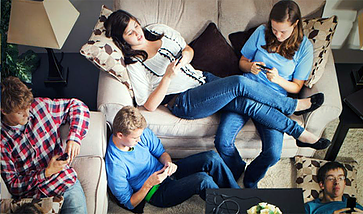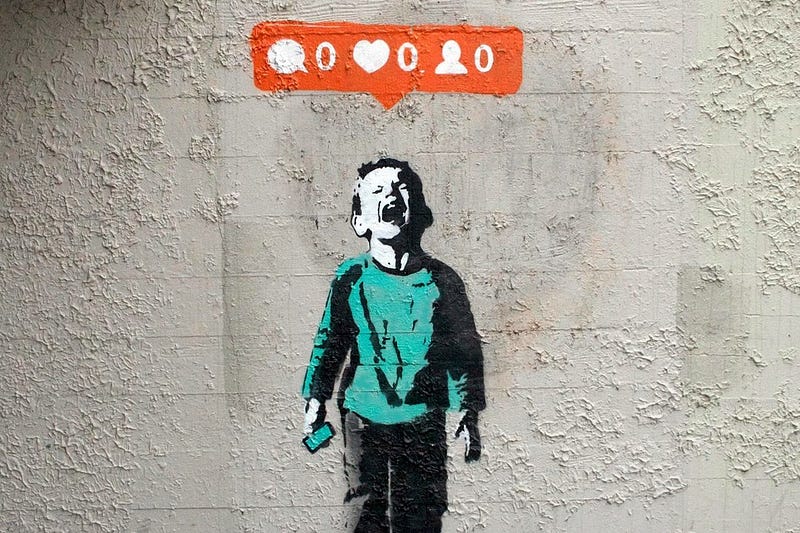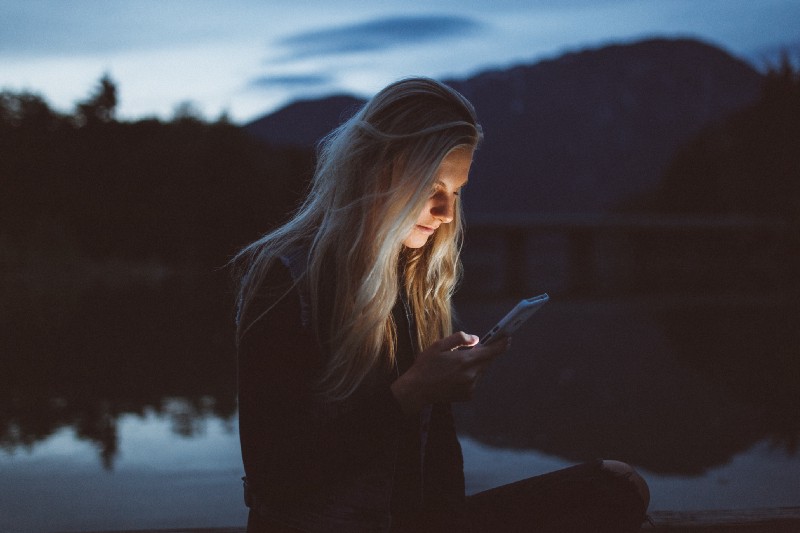A Brief History of Social Media
Six Degrees. That was the name of the first recognizable social media site. It was founded in 1997 around the idea that all living things, and everything else, in the world are connected by 6 or fewer steps in a sort of “friend of a friend” chain. As crazy as that statement may sound, it is mostly proven to be true. Somehow, someway, everything and everybody in the world is connected by a network chain that consists of 6 or fewer steps. The same concept that today’s social media spectrum is based around. (“I know a guy who knows a guy”).
While the site (Six Degree’s) itself never managed to hit the same stratospheric success as some of the other social media titans, like Instagram or Facebook; it paved the way for these apps to blossom into existence. This was the beginning of the social media era.
Instagram, Twitter, LinkedIn, Facebook, you name it. They all are based around this same universal truth. The incredibly viral growth of social media is a phenomenon to be admired in its own right. It took a while for people to catch on at first, but once the social networking movement started it never again fell stagnant. After 1999, the year online blogging was invented, it gave a whole new look and leverage to social media platforms. The early 2000’s was dominated by the likes of Myspace and Flickr. However, as it would turn out, 2005 and 2006 will be known as the real catapult years for social networking. Here came the titans.
These years gave birth to some of the most monstrous social networks that are still dominating the market to this very day. YouTube, Facebook, and Twitter all began to spring from their infancy and take control of the open markets in their respective niche. Many of the other prominent figures in today’s market, such as Instagram, Pinterest, Tinder, etc., began to follow the trend and fill the remaining areas of the market.
Today’s giants, and some of the most addictive platforms, include: Facebook, Instagram, Snapchat, Tinder, and Twitter.
Is Social Media Addiction Real?
Long answer short; absolutely. It is a very real problem, especially among millennials and the younger generations. There are plenty of statistics out there to back this statement and a-test to the alarming rise of social media addiction. Consider these statistics:
- Users between the ages of 15 and 19 spend an average of at least 3 hours per day collectively on social media.
Ages 20–29 = 2 hours per day on average on their social media accounts
- 81% of millennials check Twitter at least once per day.
To put this in perspective, nearly 25% of the total U.S. population is made up of millennials. Over 75 million!
- 51% of Instagram users access the platform daily, and 35% say they look at the platform several times per day.
These are just a few statistics, pulled from an overwhelming amount of evidence, to show the incredible strangle-hold social media has over the average American’s spare time. Science shows that people that spend too much time on Facebook or any form of Social Media, actually have a higher rate of Depression.

The reason being; people spend too much of their time comparing their lives to that of their peers. It’s hard not to become depressed when all you see on your timeline is Johnny from freshman English class water-skiing is Cabo; Sarah, who grew up 3 houses down from you, just got offered her dream job in California; and Brad, (who’s GPA in college could easily be mistaken for his average blood alcohol level Thursday-Saturday), just got promoted to assistant manager at his dad’s company. All the while, you’re too busy working 6 days a week to barely keep the lights on.
When all we get is the superficial, PR version of everyone’s lives, it’s hard not to feel behind or like we’re underachieving. Each person’s life is unique, and we aren’t all on the same schedule. Life isn’t meant to be compared, it’s meant to be celebrated.
Am I Addicted?
Be honest with yourself when asking this question. Most of us that know we are addicted to our phones and social media, will be the first person to tell somebody else, (or even ourselves), that we’re not.
The words “addict” or “addiction” carries with it a negative connotation and nobody likes to openly admit their faults.
Social media is great in small doses; but excessive time spent on social networks leads to addiction and causes people to develop a need for instant gratification. What do I mean by that? Think about those first few minutes of anxiety after posting a picture, or tweet, waiting for that first like or retweet. Or double-checking your phone off and on throughout that first hour to see if your post is getting the same type of engagement in comparison to some of your other posts. (Only 12 likes in 40 minutes?? And you all have the nerve to call yourselves my “friends”!)

If these things significantly matter to you, suggest taking a step back and self-evaluating your social media use. Take some time to yourself to live without comparison.
Superficial relationships and the perceived need of social justification leads to low self-esteem, depression, and anxiety among the vast majority of users. The things that truly matter in life, (love, relationships, self-confidence) take patience, something that social media culture has minimized in our society.
Dealing with Social Media Addiction and Depression
You answered yes to the previous question, so now what? How do you stop the endless cycle of scrolling through Facebook until there’s nothing new, then Twitter, then Instagram, then back to Facebook to see if you missed anything while you were on the others?
Some methods to try:
UNPLUG
Cliché, I know. And I know what you’re probably thinking;
— I made it this far into this article for this guy to tell me, “Oh, you’re a social media addict. I suggest you stop using it.” Einstein reincarnated. —
This isn’t permanent but give yourself a break from social media, and even the internet as a whole (as much as possible). Obviously, you may still need to use internet for work, and homework, etc. But beyond that, try to limit both as much as possible for a week or two. Delete the apps from your phone for a while and make a deal with yourself to replace the time that you would normally spend on social media or surfing the internet and put it towards more productive habits or other hobbies that you have been neglecting. Keep track of all the different things you accomplish using this extra time, no matter how small or insignificant the task may be so that at the end of your “unplug”, you can physically see the differences in your time spent. By the time-end of your goal, maybe you’ll find yourself enjoying some of your new habits and not even feel the impulse to want to log back into social media for an even longer period.
If you do decide to reengage on social media, show some self-discipline and only engage in small doses or increments. Don’t allow yourself to fall back into the same old routine of constantly checking accounts.
CUT YOUR USAGE IN HALF
A full-on unplug doesn’t seem right for you. You still want to stay active on social media but also don’t want it to consume all of your free time. One way of doing it is by cutting your social media usage in half. Say you average about 3 hours a day on social media, cut that down to 1.5 and find a new, daily hobby to occupy that new hour and a half you’ve found in your day. Treat it like a second job. Say you choose to make a commitment to an hour and a half of reading/writing every day or making a more concerted effort of going to the gym every day or spending more time with your friends/family/kids.
Make a commitment.
Find your hour and a half of free time, every single day, and block out that time for YOU and your interests. Use that time to better yourself, your relationships, your work/life balance, etc. For example, if you cumulatively spend about 3 hours a day on social media, (mostly spent between the hours of 6 and 8 pm, right when you get home from work and get a chance to relax) then make a deal with yourself that between those times, you won’t check social media. Hold yourself accountable. You’d be surprised at how creative you’ll become at finding new ways to occupy your time and find distractions to avoid the nagging impulse to mindlessly scroll through all of your social accounts.
CHANGE WHO YOU FOLLOW
If social media has become a place of depression for you due to your natural cognition telling you to over-analyze and compare yourself to the lives of your peers, then consider changing who you follow. If your timeline is a mix and multiple pug lovers accounts, of work colleagues that you only follow because you feel obligated to, and all your old high school friends you haven’t spoken to in years but always compare where you are in your life to where they are in theirs; then I suggest shaking up your timeline a bit.
Maybe the reason you find depression on your social accounts is because every time you get a new follow request from somebody you know personally or have crossed paths with; you follow back. Usually, not because you want to, but because you feel a sense of obligation to your “friendship” or “acquaintanceship”. If that’s the case; then, unfollow Johnny, Sarah, and Brad.
Follow more pug accounts, or more of those artsy, DIY, craft pages that you’re always stealing ideas from to redecorate your kitchen. Follow inspiration and positivity, instead.
Wrap-up
No matter which method you choose, or even if you don’t choose one at all and decide to make your own method that works for you, commit yourself to it and take back control of your extra time. You’ll be surprised how much longer and more enjoyable your days become when you’re spending more time on hobbies and other things you love. Social media is great for entertainment and is a great tool when used the right way; but, once you fall into a cycle of abusing it, it’s hard to pull yourself out of. Make a choice to change your social media habits and commit yourself to that choice. Control the scroll, DON’T let it control you.
[If you found this article entertaining or helpful; please CLAP, SHARE, and FOLLOW my Medium account for more content! Thanks for reading!
-Dom]
References:
https://tfetimes.com/social-media-addiction-statistics-and-trends/


